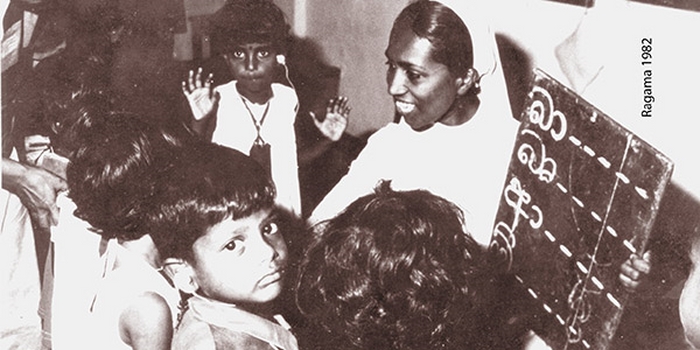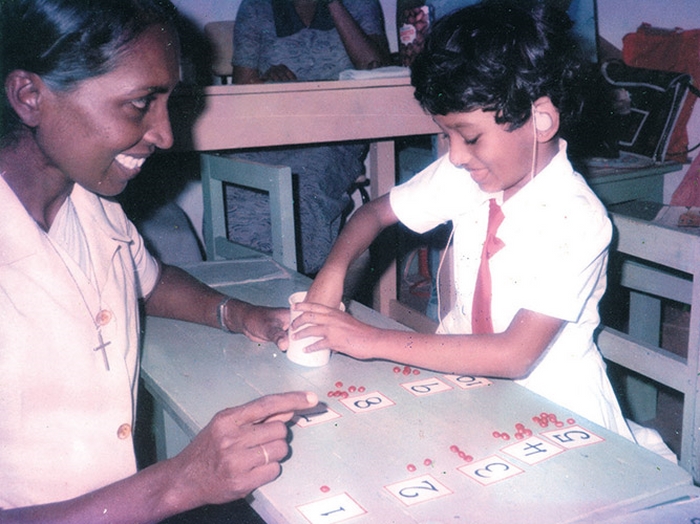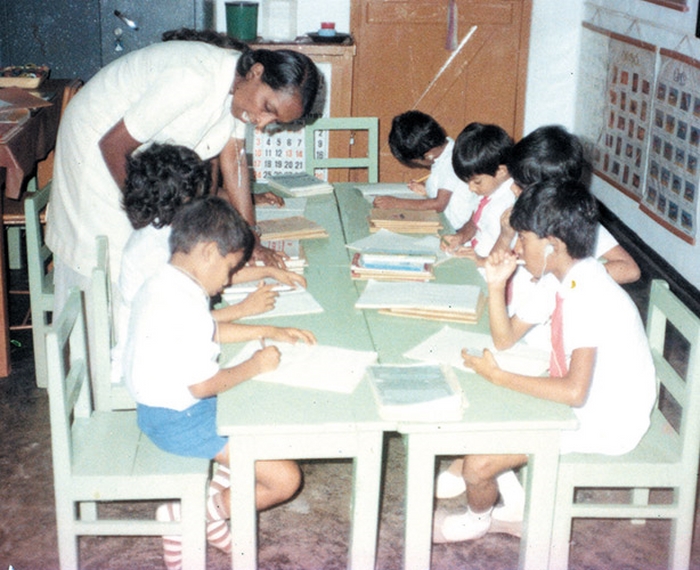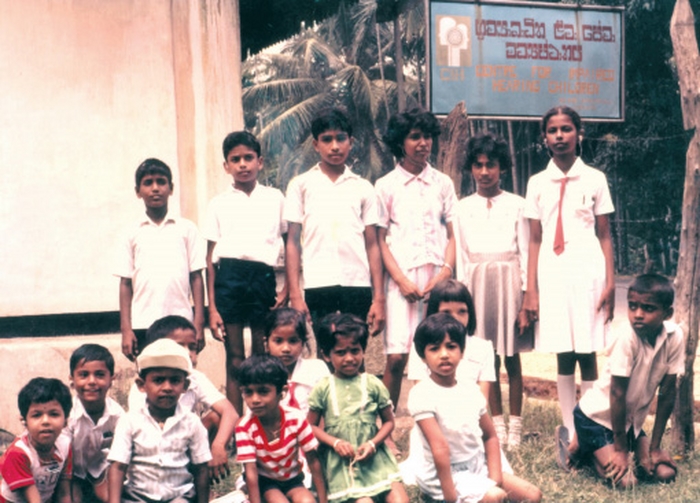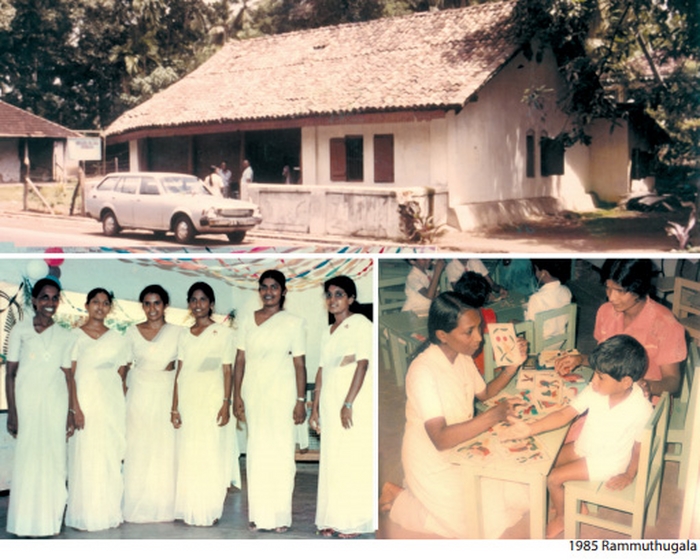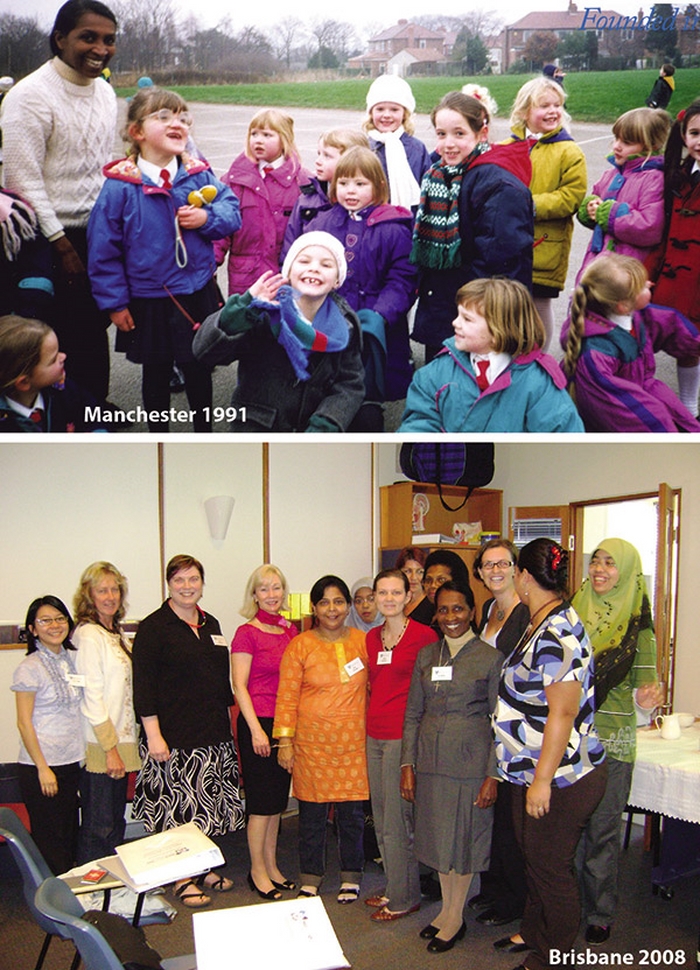Our History
The miracle that is the CEHIC today emerged out of two strong founding principles – free education for all hearing impaired children and an ethos of inter-religious and inter-ethnic cooperation and harmony.
Once upon a time….
…hearing impaired children in Sri Lanka, in the 1980’s, couldn’t even dream of leading a normal life. Rarely were they correctly diagnosed and given the proper care and treatment. Even when their hearing impairment was correctly diagnosed, their education was not systematic. They received no speech training and in most cases they were placed in segregated institutions away from children with normal hearing. The psychological damage caused by this kind of attitude was much worse than the physical handicap itself, as the description “deaf and dumb” stuck to them for life. They and their families had to carry the burden of this social stigma which caused severe psychological stress wherever they went.
However a glimmer of hope in the future was brought by a person with vision and a pioneering spirit who took up the difficult challenge of exploring the hitherto uncharted landscape of educating the hearing impaired children of Sri Lanka. This person was Sr. Greta Nalawatta
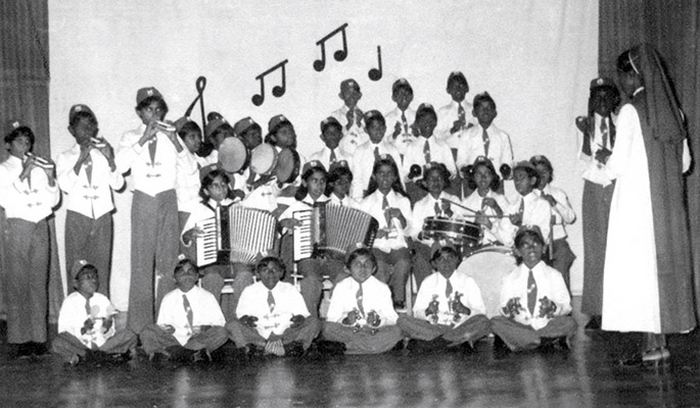
The Novice Nun
1963 Greta Nalawatta joins the Roman Catholic religious congregation, The Sisters of Perpetual Help. These nuns were among the pioneers of the rehabilitation of the deaf in Sri Lanka. They have run the St. Joseph’s School for the Deaf at Ragama, Sri Lanka, for over 80 years. It has a residential hostel, and its educational programme at that time was based mainly on the use of sign language.
1965 Sr. Greta completes her training period as a novice and becomes a professed nun of the congregation of Our Lady of Perpetual Help. She is sent by her superiors to join the staff of St. Joseph’s School for the Deaf in Ragama.
19651973 Sr. Greta is sent for training as a Teacher in Special Education to the Government Specialist Teacher Training College in Maharagama. She passes out with the best marks.
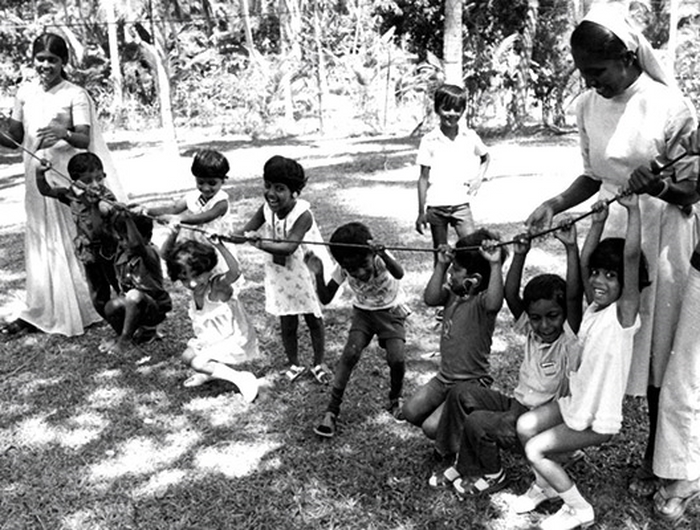 Disillusion yet submission to God’s will
Disillusion yet submission to God’s will
1980 A period of disillusionment sets in. The traditional methods of deaf education, the social marginalization of hearing impaired children and the inability of the institution to innovate and experiment, makes Sr. Greta question her role in this system of education. She felt that by using a different method of education and training, specially at preschool level, the hearing impaired could be given a lot more hope in the future and helped to become fully integrated members of society. She feels helpless and lost, and thinks of leaving the field of “deaf” education altogether.
1980 Sr. Greta seeks the help of Rev. Fr. Aloysius Pieris s.j. on the recommendation of Rev. Fr. Oswald Firth OMI. She undergoes a discernment retreat and overcoming her discouragement, she submits to God’s will and goes back to Ragama.
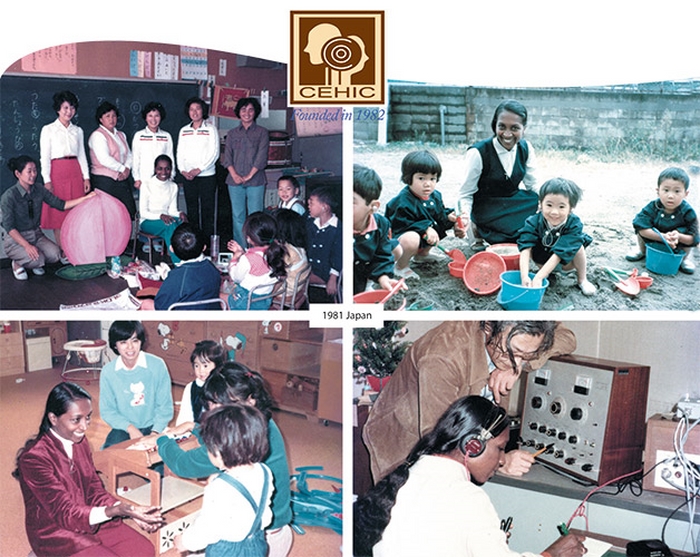
Japan
1981 Japan A scholarship to study the new techniques of hearing impaired education in Japan is offered to Sri Lanka. Sr. Greta is asked to go but she declines and asks that someone else be sent instead. But Mr. Irvin Basnayake, the then Deputy Director of Social Services insists it has to be Sr. Greta and no one else. He wanted someone with the zeal and capacity to put into practice in Sri Lanka what was learnt in Japan. He knew only Sr. Greta could achieve this. After much reflection and prayer she finally accepts the offer and goes to Japan.
Sr. Greta studies the new methods of pre-school training for hearing impaired children. This method is based on Auditory-Verbal techniques which help children to speak while using their residual hearing which is appropriately amplified by hearing aids. With this method pre-school children can be successfully integrated into mainstream education at the school going age.
The first ever preschool in Sri Lanka
1982 On her return from Japan, Sr. Greta discusses her dreams about a new method of education for hearing impaired children with various people. SEDEC puts her ideas into a seminal project. (It was on the basis of this that Fr. Oswald Firth, worked out the first project application which MISEREOR, Germany, later funded).
Sr. Greta began to gather the parents of hearing impaired children to give them the outlines of her vision.
Sr. Greta is given permission by her superior to start a pre-school at Ragama. She was not very happy about this location since she felt that the two methods, the auditory-verbal and sign language, would clash. But she was not given a choice. Her request to have it in Periyamulla, near the mother house of her congregation, was turned down. 31st May 1982 The first ever pre-school which attempted to INTEGRATE hearing impaired children into the mainstream education and social system of Sri Lanka is started at St. Joseph’s School for the Deaf at Ragama by Sr. Greata Nalawatta. It is ceremonially opened by the Deputy Director of Social Services, Mr. Irvin Basnayake and the Japanese expert Miss Misako Hamoto.
A dream shattered
December 1982 Sr. Greta’s dream is shattered when the school is suspended. This is due to the provisional nature of the permission granted to open the school by the Superior in place at the time, and the change of administration in her congregation. She is sent away from Ragama and she leaves the field of “deaf” education. She tries her hand at other people-oriented ministries among the poor fisher folk and landless peasants.
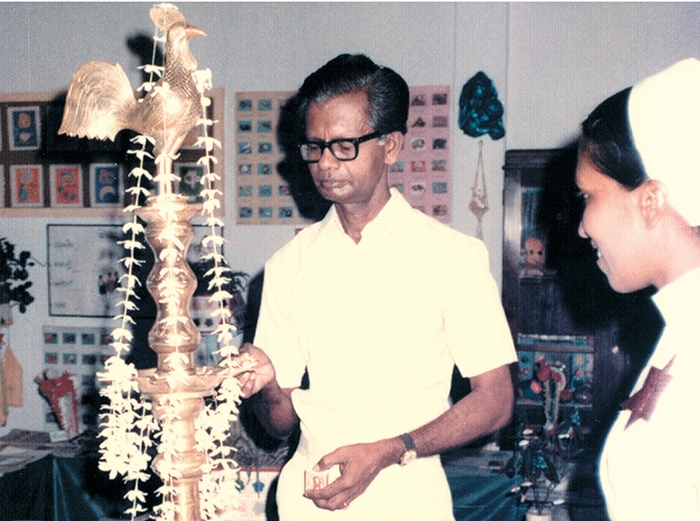
Kirillawela
But the parents of the children do not let go. They go in delegation to meet Sr. Greta’s Superior General and even the Archbishop, asking that Sr. Greta be brought back. They are not wholly successful. As a compromise, her superiors found for Sr. Greta a position as a teacher in charge of a special unit at the Kirillawela Maha Vidyalaya, a government school for primary, secondary and senior level education. She was also transferred to the Community at Gothatuwa from where she would travel daily to Kirillawela, a tedious bus-ride.
The search for children to teach
1983 On arrival at Kirillawela, Sr. Greta is greeted with surprise by the principal who tells her there are no hearing impaired children to teach, and no classroom for her to use.
Undaunted, Sr. Greta goes walking into the surrounding villages and seeks out the hearing impaired children who have been left with a hopeless future. Some people in this strongly Buddhist area think Sr. Greta has come amongst their midst to convert them to Christianity! However a local Buddhist monk, the Ven. Silogama Wimala Thera, tells them they have nothing to fear. In his sermons, he asks the people to help Sr. Greta, since her only concern is to better the lives of hearing impaired children and their families. Noticing her strong will and purpose, the Principal, Mr. A. Ranasinghe, becomes her champion. He finds her a classroom and with the help of the parents the classroom is painted and bits and pieces of furniture and other basic equipment are provided.
The pre-school restarts…. and continues today
November 1983 Sr. Greta realised that her attempts at integrating hearing impaired children will fail unless the children are given a pre-school training. In November 1983 she is given the chance to re-start her pre-school by the E.N.T. specialist Dr. Cynthia Jayasuriya, in Dr. Cynthia’s clinic at Borella. Sr. Greta conducts the classes seated on mats with the children and their parents in a small room at the clinic. Sr. Greta finds a young woman, Amitha Teldeniya, who had passed her Advanced Level examination, to help her as a volunteer. Later, another young woman, Ranjani, also joins as a volunteer.
The Association for the Hearing Impaired Children
1984 Sr. Greta and the parents begin to get organized, and at the suggestion of Fr. Aloysius Pieris s.j., they form the Association for the Hearing Impaired Children (AHIC) in December 1984. They receive help and advice on legal matters from Mr. Basnayake.
Sr. Greta is made the first treasurer of AHIC.
The pre-school shifts to Kirillawela
1985 The number of children in the Borella pre-school increases and space becomes a problem. Sr. Greta goes from house to house in Kirillawela, asking for a small space to start a pre-school. A good Samaritan in the form of an elderly spinster lady called Miss Jayakody offers her a dilapidated house in Ranmuthugalla for the pre-school. This was close to the Kirillawela Government school. With this move the pre-school was able to expand. Money was raised for rent and electricity by the parents selling ‘Mahapola’ Lottery tickets on the streets and at bus stands.
It was at this time that Sr. Greta started to recruit volunteer trainee teachers from among young women who had passed their Advanced Level (University Entrance) examination. They later became paid employees of AHIC after receiving their training from Sr. Greta. Amitha and Ranjani are joined by Nirmala and later by Kusum.
The number of children attending the pre-school starts to increase again. A parent, Mr. Mohammed Annis, arrives to admit his child and is told that admissions had to be stopped due to lack of space. He immediately donates his share of a property in Dalugama, Kelaniya, which was ideal for a new pre-school and had ample space for future expansion. The balance price to be paid was Rs. 1.5 million. Without money, and trusting in God’s Providence, Sr. Greta immediately shifted the school to these new premises.
The move to Dalugama
10th May 1988 The pre-school moved to Dalugama to begin a new and now permanent existence. Based on the seminal project written by Rev. Fr. Oswald Firth OMI at SEDEC in 1982, MISEREOR of Germany donated the money needed to purchase the property at Dalugama. MISEROR also helped with the running costs of the new site for many years thereafter
1991 Sr. Greta goes to the University of Manchester in England and obtains a Post Graduate Diploma in Advanced Studies in the Education of Hearing Impaired Children (DASEHIC) in 1992 after a year’s full-time study.
CEHIC
1992 With further help from MISEREOR, the Dalugama site is completely renovated and new buildings are constructed. JICA of Japan donates essential audiological equipment. The Centre for Education of Hearing Impaired Children (CEHIC) is formally declared open by the then Prime Minister of Sri Lanka on 26th April 1992.
1995 Sr. Greta is transferred from Kirillawala Maha Vidyalaya to St. Francis Maha Vidyalaya in Dalugama close to the CEHIC. In her Special Unit for Year One hearing impaired children she continued the essential process of integration of these children into the mainstream education system.
2002 Sr. Greta retires from Government service and continues full-time at CEHIC.
2008 Sr. Greta travels to Australia and graduates in the Global Professional Training Programme in Auditory-Verbal Therapies of the HEAR AND SAY CENTRE, Brisbane. This training included AuditoryVerbal therapy techniques as well as new practices in post-Cochlear Implant speech and language habilitation.
2009 Sr. Greta starts admitting children with Cochlear Implants into the CEHIC pre-school as a response to the incessant pleadings from their parents who were looking for effective post-implant speech and language therapies which are an essential part of the cochlear implant treatment package.
2010 Renovation and Repainting of the CEHIC after nearly 20 years.
2012 Sr. Greta completes a comprehensive training of all the teachers in Auditory-Verbal educational techniques and re-designs and updates the whole educational curriculum of CEHIC.
2013 A specialist Early Intervention programme is started for hearing impaired infants under 2 years of age.
New Methods
By now, Sr. Greta has developed her own methods for the education and integration of hearing impaired children on the basis of her many years of experience and experimentation, and reflecting the cultural and social conditions of the families and communities into which these children are born.

